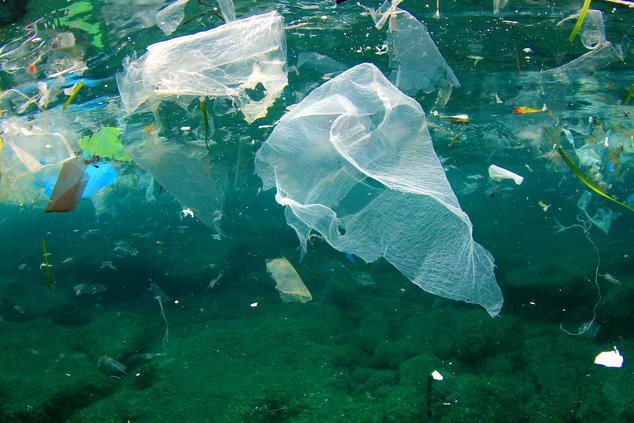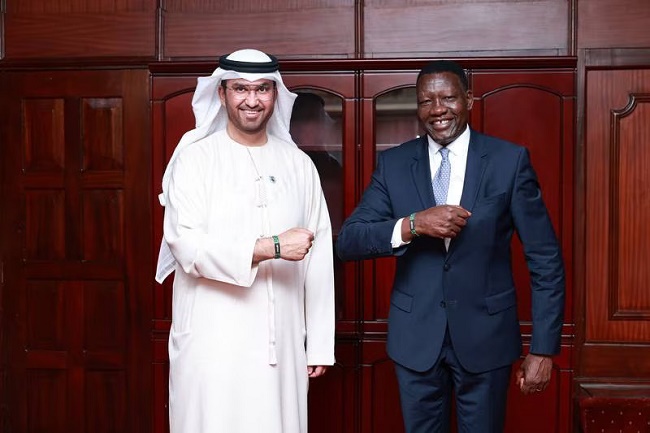
Today, in New York, the United Nations adopted a historic agreement aiming to ensure the conservation and sustainable use of marine biodiversity of areas beyond national jurisdiction which cover over two-thirds of the ocean.
“You have pumped new life and hope to give the ocean a fighting chance”, noted António Guterres, Secretary-General of the United Nations. He commended the adoption of the agreement as a demonstration of the strength of multilateralism. “By acting to counter threats to our planet that go beyond national boundaries, you are demonstrating that global threats deserve global action”, he said, “and that countries can come together, in unity, for the common good”.
Building on the legacy of the United Nations Convention on the Law of the Sea, this groundbreaking agreement significantly strengthens the legal framework for the conservation and sustainable use of marine biodiversity in over two-thirds of the ocean. It provides an essential framework for cross-sectoral cooperation between and among States and other stakeholders to promote the sustainable development of the ocean and its resources and to address the manifold pressures it faces.
The effective and timely implementation of this Agreement will make crucial contributions to achieving the ocean-related goals and targets of the 2030 Agenda for Sustainable Development and the Kunming-Montreal Global Biodiversity Framework.
The Agreement addresses four key issues.
It sets up a framework for the fair and equitable sharing of benefits arising from activities with respect to marine genetic resources and digital sequence information on marine genetic resources of areas beyond national jurisdiction, ensuring that such activities benefit all of humanity.
It will enable the establishment of area-based management tools, including marine protected areas, to conserve and sustainably manage vital habitats and species in the high seas and the international seabed area. Such measures are critical for archiving the “30 by 30” global target to effectively conserve and manage at least 30 per cent of the world’s terrestrial and inland water areas, and of marine and coastal areas by 2030, as agreed in the Kunming-Montreal Global Biodiversity Framework.
It will ensure that environmental impacts of activities in areas beyond national jurisdiction are assessed and considered in decision-making. It also provides, for the first time, an international legal framework for the assessment of the cumulative impacts of activities and the consequences of climate change, ocean acidification and related impacts, in areas beyond national jurisdiction.
And it will facilitate cooperation in capacity-building and the transfer of marine technology to assist Parties, in particular developing States Parties, in achieving the objectives of the Agreement, so as to level the playing field for all States to responsibly utilize and benefit from marine biodiversity of areas beyond national jurisdiction.
Furthermore, the Agreement addresses several cross-cutting issues, such as its relationship with the United Nations Convention on the Law of the Sea and relevant legal instruments and frameworks and relevant global, regional, subregional and sectoral bodies, as well as funding and dispute settlement. It also sets up institutional arrangements, including a Conference of the Parties, a Scientific and Technical Body and other subsidiary bodies of the Conference of the Parties, a Clearing-House Mechanism and a secretariat.
The Agreement will be open for signature at United Nations Headquarters in New York for two years from 20 September 2023, the day after the 2023 SDG Summit. It will enter into force after ratification by sixty States. The Secretary-General is required to convene the first meeting of the Conference of the Parties to the Agreement no later than one year after its entry into force.
The Secretary-General urged all States to spare no effort to ensure that the Agreement enters into force, and called on them to act without delay to sign and ratify it as soon as possible. “This is critical to addressing the threats facing the ocean, and to the success of ocean-related goals and targets — including the 2030 Agenda and the Kunming-Montreal Global Biodiversity Framework”, he said. He also expressed readiness to help States make this happen.
The path towards ratification and early implementation will require concerted efforts by States, stakeholders and the UN system. Coordination of these efforts and cooperation will be of utmost importance.











